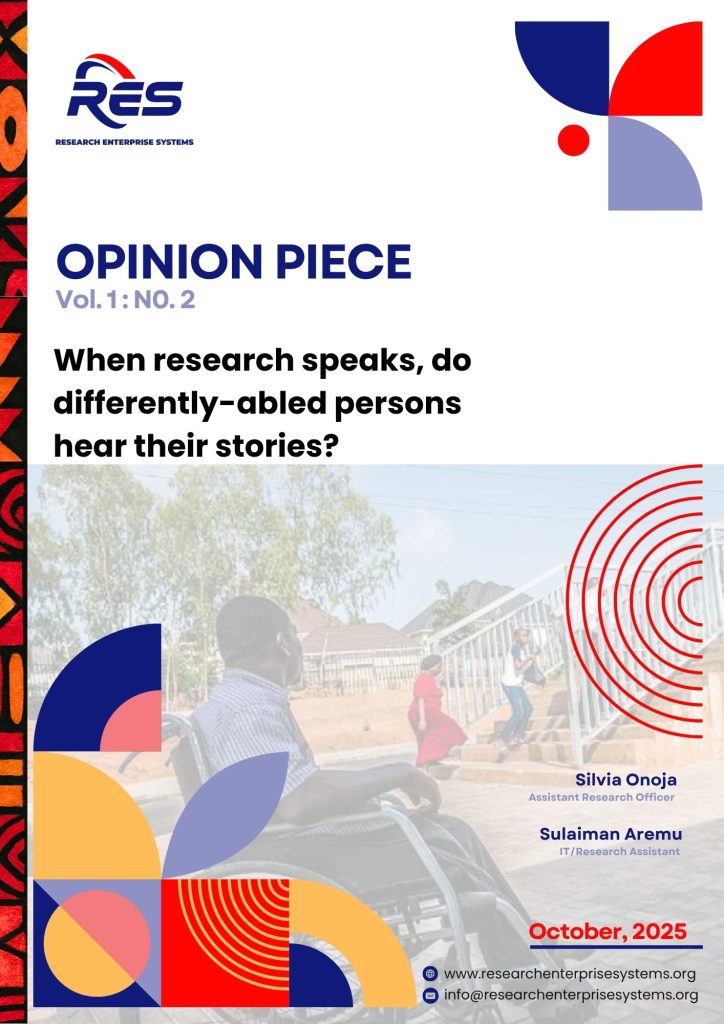In recent years, Africa’s research landscape has been expanding, sparking diverse debates and growing scholarly engagement. Between 2001–2018, African researchers produced over 508,102 scientific publications underscoring the continent’s rising contributions to global knowledge. Yet, within this progress lies a critical blind spot which is disability. Far from being an abstract concept, disability shapes the daily realities of millions across the continent. Still in many research projects, disability remains invisible, skewing findings and eroding the credibility of outcomes. A particularly overlooked dimension is the representation of persons with disabilities throughout the research process. This exclusion means that many studies fail to reflect the lived experiences of one of society’s most vulnerable groups, resulting in knowledge that only partially mirrors African realities. Globally, an estimated 1.3 billion people or about 16% of the population, live with significant disabilities of these 80% reside in developing countries many of them in Africa, sidelining their perspective is not merely an oversight but fundamentally undermines the inclusivity, integrity and transformative potential of African research outputs.
Recognizing this gap, Research Enterprise Systems (RES) convened a webinar to spotlight and analyze disability inclusion in policy-oriented research across Africa and also trained young researchers on policy-oriented research. Despite global and regional commitments such as the UN Convention on the Rights of Persons with Disabilities (CRPD), the African Union’s Agenda 2063 and the African Disability Protocol, there remains a disconnect between rhetoric and reality. In light of this, it might be necessary to ask why has it been difficult for researchers in Africa to adequately mainstream disability voices in the research process?





Leave a Reply